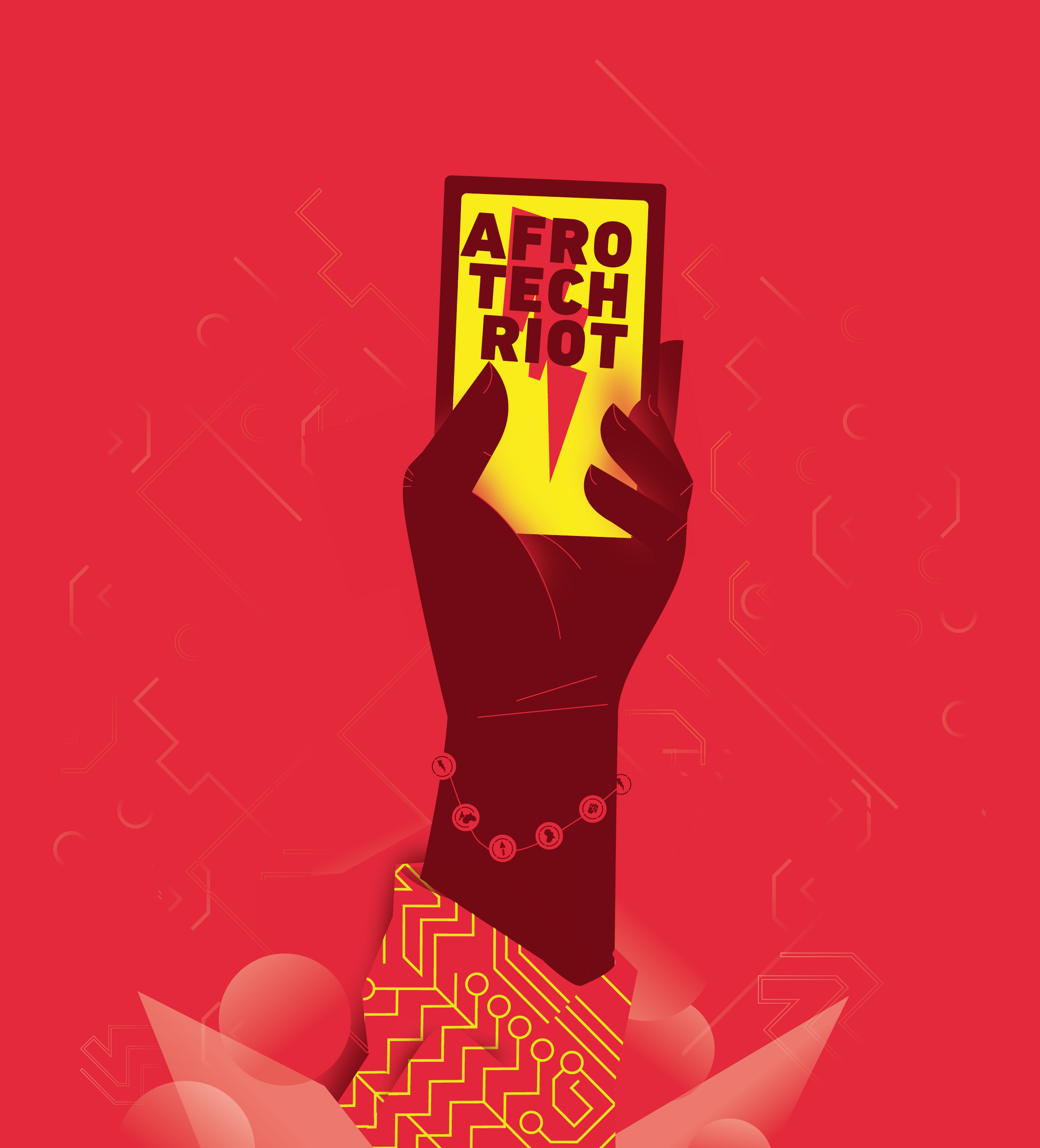“Ungaphthelwa Innovation Yako” / “Own Your Innovation”
In a collaboration between City of Johannesburg, Tshimologong Precinct and Wits University, this year’s Fak’ugesi African Digital Innovation Festival is created for conversations, collaborations and projects for Africans by Africans. It runs from the 19th of August until the 3rd of September. The annual festival is an “African celebration of digital technology, art and culture” in Johannesburg aimed at encouraging people in the city and on the continent more broadly to own their creativity and innovation through thinking about and constructing African visualization of the city, the digital, the playful and the future. With this year’s larger theme being the “AFRO TECH RIOT”, explorations of African knowledge systems, femininity, community and spirituality in relation to technology and the digital are the threads pulled throughout the two-week long festival. Johannesburg’s newly constructed tech hub Tshimologong on 47 Juta Street Braamfontein will be turned into a collaborative space through workshops, talks, installations, exhibitions, performances, pitches, awards, parties and gaming.. The festival asks participants to think about and engage with the idea that relationship between art, technology and creativity are “culturally embedded phenomenon” (Bristow 2014: 168). The revolutionary spirit of the festival is supported by its other partners British Council’s ConnectZA, Goethe Institut, and the Johannesburg Centre for Software Engineering (JCSE).
Major events this year include old time favourites along with new exciting projects and talks:
Fak’ugesi Digital African Residency in which local and international digital artists and creatives are invited to be on residency to explore the festivals theme. This year, with Pro Helvetia Johannesburg, saw an open call for creatives within the SADC region. The festival residents will be exhibiting their work and participating in discussions in the Reverse Digital Hustle (with Livity Africa) on the 24th of August, the Fak’ugesi Residents Exhibition from the 29th to the 30th of August, as well as being part of other smaller workshops at Tshimologong and the Fak’ugesi Soweto Pop Up in Orlando East. This year’s residents are Vuyi Chaza from Zimbabwe, Cebo Simphiwe Xulu and Regina Kgatle from South Africa.

The Agile Africa Conference (22 & 23 August) hosts African software professionals to discuss and brainstorm better ways of working with and creating software, as well as what this means within an African context.
This year also includes a talks program in which digital artists and technological innovators discuss African knowledge systems in technology and the digital space and get a deeper understanding of “cultures of technology” (Bristow 2014: 169). The first being the Reverse Digital Hustle Talk featuring this year’s residents and guest Tabita Rezaire (24 August). We also see Fak’ugesi’s twin festival CairoTronica feature with its Director Haytham Naywar forming part of the second Fak’ugesi Talks (26 August) along with Joshua Noble and The Constitute.

The role of women in technology is being given multiple chances in the limelight this year with events including Maker Library Network & Geekulcha Open Data Quest workshop (24 August) which challenged participants to use online data about Women and Human Settlements to put together a story board that explores and tries to address the social relations involved around these social issues. Other events include the Women in Tech @ Fak’ugesi (29 August) which is a discussion and networking platform focused on the need to support and highlight the achievements of women in the tech industry. The Creative Hustle as part of the new Fak’ugesi Talks program with ConnectZA, puts together industry professionals Karen Palmer and Valentina Floris to talk about pushing boundaries and how technology and creativity combine.
In thinking about technology by African for Africans, #HackTheConstitution (26 August) provides an interactive version of South Africa’s constitution in which lawyers, developers, UX specialists and artists are invited to work on creating a prototype app that can make the Constitution more accessible.
A MAZE Johannesburg will be adding to the playful aspect of the festival with their events, talks and workshops running from 31st of August to the 3rd of September for gaming enthusiasts.
The Market Hack, one of the festivals popular events, with ConnectZA and South African Maker Collective (27 August) is a daylong takeover of The Grove at South Point (Braamfontein) involving activities related to play and learning about 3D printing, virtual reality and sound.

Maker Library Network & Geekulcha (1 September) will be running 3D fashion experience in collaboration with designers from the Tshwane Fashion Project to explore how the 3D experience can add to the fashion industry.
Also new to the program is a “future sounds” workshop (25 – 27 August) with Goethe Johannesburg will bring together the Create Africa Collective and Berlin-based digital artist, The Constitute, to mix technological innovation with the re-imagining of sound. The results of this collaboration will form part of the Alight Bloc Party/Tshimologong Precinct Launch (1 September) and will light up the Precinct with featured projects including Future Sounds, installations provided by UK-based creative studio SDNA and light-based installations from South African artists to officially open up the Precinct.
The A MAZE and Fak’ugesi Soweto Pop Ups (27 and 28 August) will be held at Trackside Creative in Orlando East which will provide a mixture of virtual reality experiences, game design workshops, live digital installations and various projects related to video, performance and other technological forms.
Visitors can also check out The Rotating Exhibition Room which has an ongoing exhibition until the 31st of August featuring video art from artist Magdalena Kallenberge, Ahmed Esher, Carly Whitaker, Mohamed Allam, Foundland and students from The Animation School.
To find out more information about the festival and to look up the other smaller workshops and events they will be running check out their website
References:
Bristow, T. (2013). “We want the Funk”.
Bristow, T. (2014). “From Afrofuturism to Post African Futures”.





